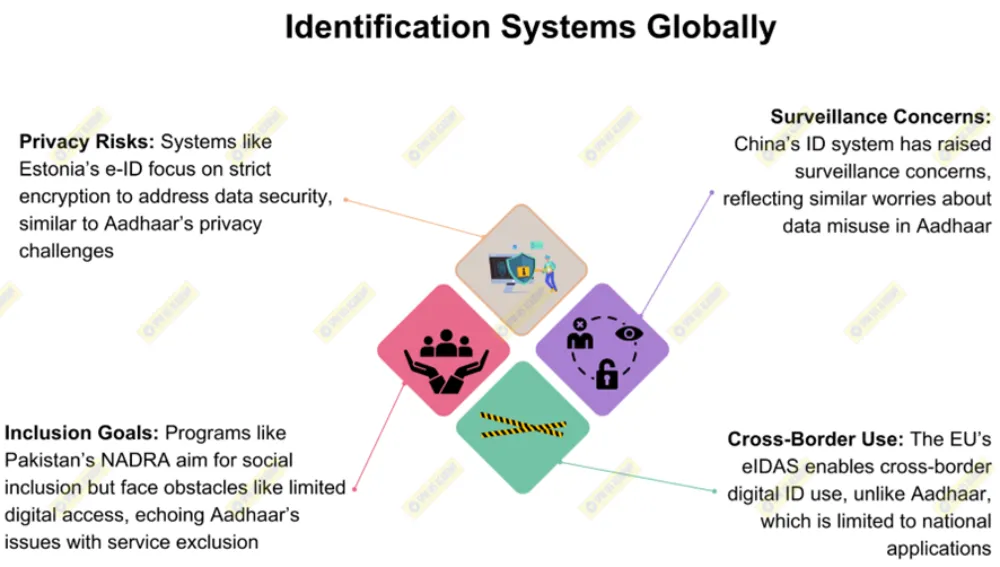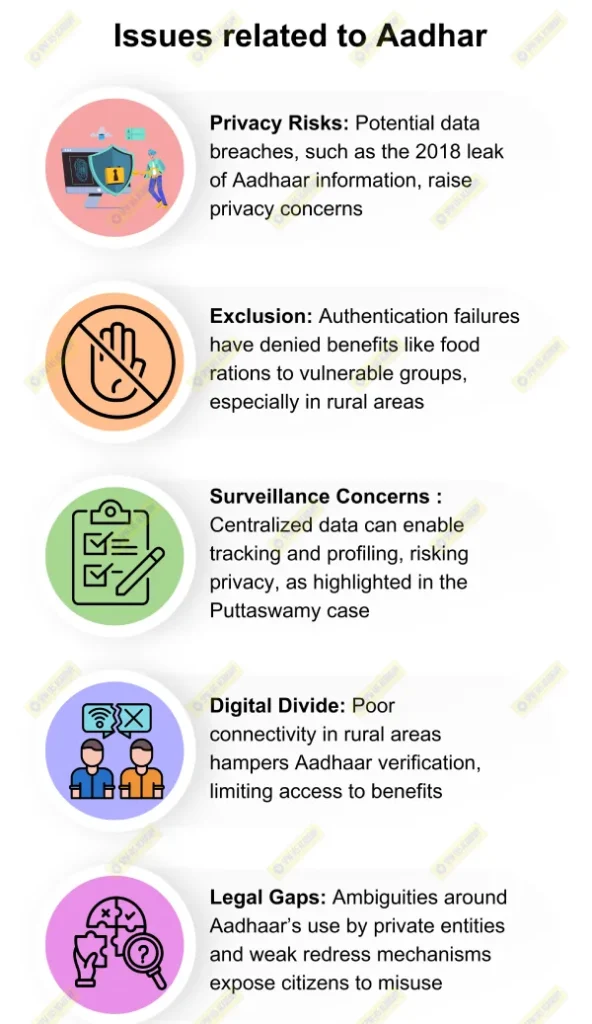Introduced in 2009, Aadhaar has become the backbone of identity verification in India, with over 1.3 billion Indians enrolled. Designed as a unique 12-digit identification number, Aadhaar is used to streamline access to subsidies, financial services, healthcare, and digital resources, ensuring efficiency and transparency across sectors. It has revolutionized service delivery, becoming indispensable in the daily lives of Indian citizens.
Key Uses of Aadhaar in Daily Life
- Direct Benefit Transfers (DBT) – Aadhaar ensures that subsidies, such as those for LPG (PAHAL) and PM-KISAN payments, reach the right beneficiaries directly in their bank accounts, reducing leakages and ensuring transparency.
- Banking and Financial Services – Aadhaar enables instant KYC (Know Your Customer) for bank accounts, mutual funds, and digital wallets, making it easier for people to open accounts quickly, particularly in rural areas, through initiatives like Aadhaar-enabled Payment System (AePS).
- Healthcare Access – Aadhaar is linked to the Ayushman Bharat Digital Mission (ABDM), enabling easy access to medical records and health services across hospitals and health centers, ensuring continuity of care.
- Digital Identity Verification – Aadhaar facilitates seamless e-verification for online services, such as e-signatures on legal documents, mobile connections, and even EPFO accounts for retirement benefits, providing hassle-free access without physical paperwork.
- COVID-19 Vaccination and Digital Certificates – During the pandemic, Aadhaar was crucial in booking vaccination appointments on CoWIN and verifying identity to issue digital vaccination certificates, making it a go-to ID for health-related services.
- Education and Scholarships – Aadhaar verification is required for scholarships and student loan applications, helping students from economically weaker sections access financial aid without middlemen, ensuring that benefits reach the right recipients.
- Property and SIM Card Verification – Aadhaar is used for instant verification during property registrations and to activate SIM cards, preventing fraud and establishing secure ownership and mobile identity.

Through these applications, Aadhaar has streamlined access to banking, healthcare, education, and digital services, cementing its role as a critical tool for identity verification and service delivery in India.












